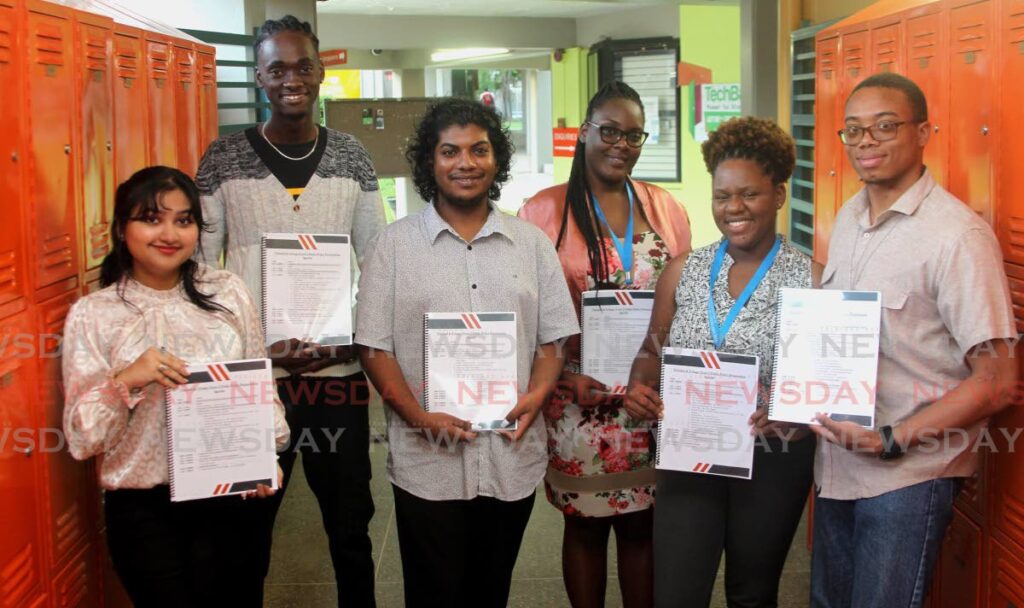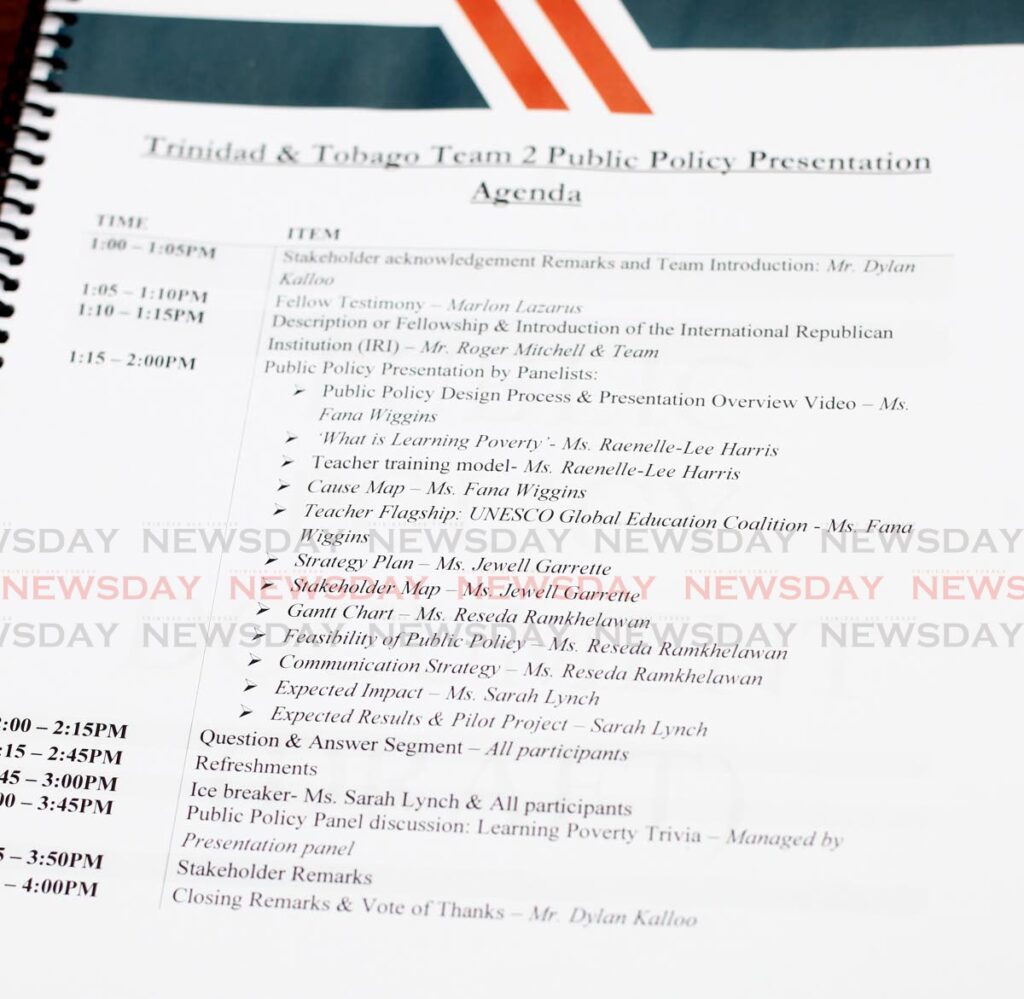UWI students aim to help primary schoolchildren

A group of students from UWI has decided to work on a draft policy for the TT government to ensure all primary schoolchildren are able to properly grasp age-appropriate content by the age of ten.
The group for the Guild of Students visited one primary school in Carenage and did its research by using the Information, Tailoring/Targeting, Professional Development, Observation and Coaching approach (ITPOC).
This research method included mentorships, breakout sessions, teamwork sessions, asynchronous activities with the group, educators and other relevant people.
Though there is a lack of research and data in the country on this issue, the group is still working towards its goal, with the help of the International Republican Institute (IRI) and its Youth Leadership programme.
IRI is an international non-profit organisation based in Washington, DC, with the purpose of working in countries worldwide to combat issues that are not talked about. To date the IRI has worked with 80 countries, 21 of them in Latin America and the Caribbean.
Roger Mitchell, IRI’s resident programme manager, explained the group had to be trained to ensure its members had the necessary information to investigate and put together their policy.
“The course was 16 weeks long and it was focused on topics of leadership and public policy. There were other topics in between, but the overall goal was to provide hands-on, practical experience from those who were in government positions and who had leadership experiences, but also provide tangible examples and de-pack how the public policy being processed is done.”
Mitchell added that the IRI always partners with the country’s government to get its thoughts and input on the work it is doing. He said after the training was completed, the group had a policy proposal which was presented to the public.
This took place during a panel discussion at the Courtyard by Marriott, Port of Spain to then president of then TT Unified Teachers’ Association (TTUTA) Antonia De Freitas, educators from public and private schools, and principals and teachers of the intended schools for the pilot project.

This presentation, on August 13, was led by Fana Wiggins, a final-year environmental engineering student. Wiggins said Education Minister Dr Nyan Gadsby-Dolly was invited, but was unable to attend.
Despite her absence, Wiggins said, “She did inquire into what the policy was about, for more information during our attempts to get her thoughts on the policy during the design phase. Her questions did offer us some insight into areas of improvement.”
She added that the group also contacted TTUTA, which was more active in helping it execute its policy proposal.
“The president, Antonia De Freitas, even offered to meet with us after, to further develop the policy and explore our pilot project a bit more,” said Wiggins.
Marlon Lazarus, a fifth-year environmental science and geography student, was tasked with finding a link between SEA results and this learning problem.
“It was a crucial role, because there is no exact way to really measure this. I was trying to find the link between the pandemic and the different phases that primary-school students deal with results in terms of passing and failing grades,” said Lazarus.
Wiggins added that the group looked at contributing factors, which were learning deprivation and learning loss.
“Learning deprivation looks at students not having that access to actual education, while learning loss is where the infrastructure and system are in place, but students are not retaining the information, and that speaks to, possibly, a flaw in the model of the existing education system.”
Given teaching was heavily disrupted by the covid19 pandemic, this contributed to children experiencing learning loss and Wiggins added that from the research, the group found at least 21 per cent of primary-school students are suffering from these issues.
Reseda Ramkhelawan, a recent graduate with a bachelor’s in psychology with a minor in international relations, said the group also felt teachers should be treated better
to help reduce this issue. She explained that teachers need to be given ample space to enforce the tenets of any professional development training.
"The current education system does not allow for this, and as such hinders the ability to develop a sustainable environment for maximised teacher development and student-centred learning. I’ve seen this in a lot of socio-economic schools and what we’ve realised is, the teachers can’t really guide the students or give them proper instructional directions, and that’s when we had to decide which stakeholders would work well here.”
This comes as the policy mentioned that these issues would be redressed from low socio-economic school districts. The reason for this is these students are at risk of educational disadvantage when accounting for teaching materials, technical resources and the level of advocacy and media coverage from the public.
Ramkhelawan said the stakeholder chosen was United Way TT, since it had already embarked upon projects to help children and teachers where the Education Ministry couldn’t. United Way TT is a non-profit organisation (NGO) founded in November, 1999 that works with other NGOs, government, business, labour, community leaders, and socially conscious individuals and organisations, locally and internationally to improve the quality of life in TT.
Ramkhelawan said she felt the ministry is limited, whereas United Way TT has found viable ways to create impact and structure projects through collective efforts with both multiple corporate partnerships and, most importantly, the communities of these primary students.
“We chose Carenage as our area of focus, and we were looking at if we wanted to develop specific professional development teams, how many, and we get the support in terms of getting someone to dictate what the educational district needs.”
She then proposed that at the teachers' workshops there should be pre- and post check-ups to ensure teaching methods such as phonetics are taught in classrooms.

Comments
"UWI students aim to help primary schoolchildren"